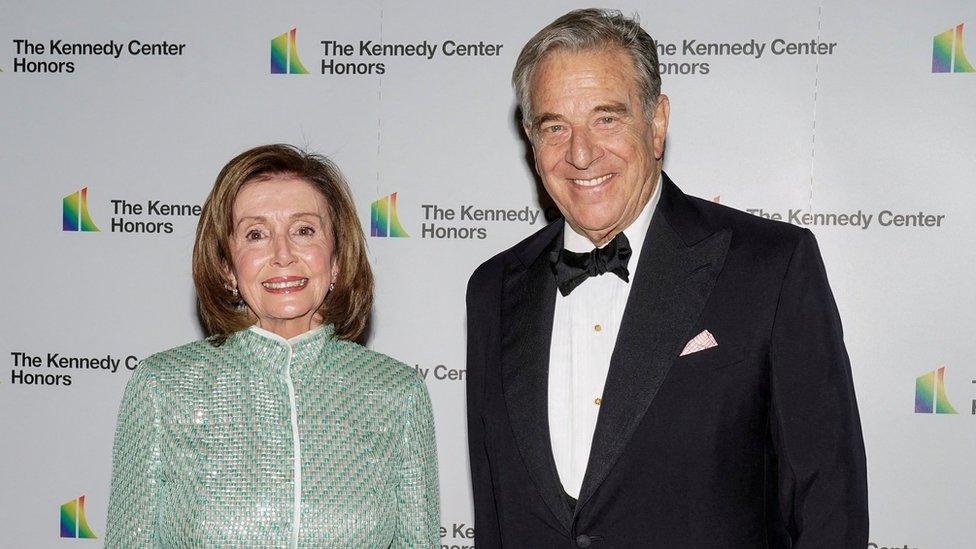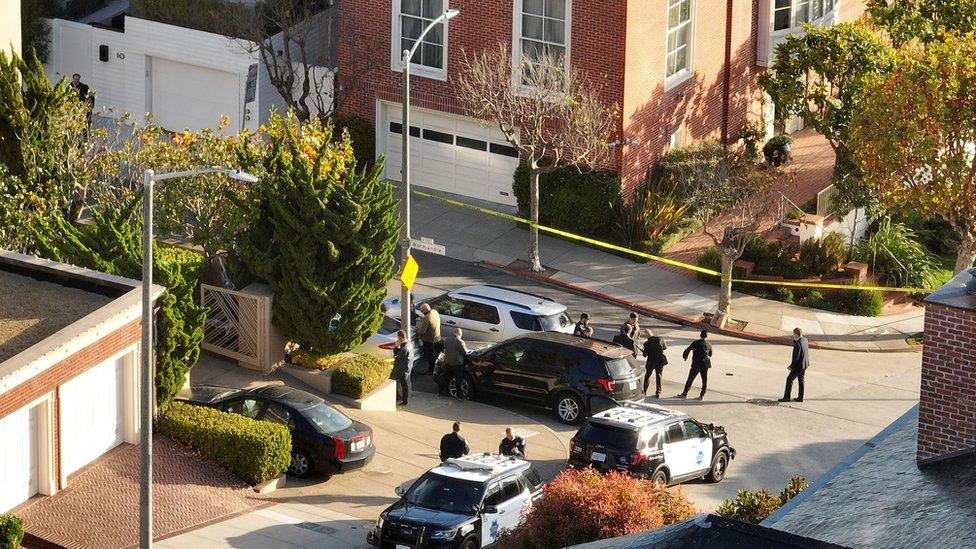Paul Pelosi discharged from hospital after hammer attack
- Published

Paul Pelosi, the husband of US House of Representatives Speaker Nancy Pelosi, has been discharged from hospital six days after a hammer attack at his home.
Mrs Pelosi, who is second in line to the US presidency, said her 82-year-old husband remained under medical care at home, surrounded by family.
Mr Pelosi had surgery to repair a skull fracture and injuries to his right arm and hands after the assault.
He was struck by an intruder last Friday at the San Francisco home.
The suspect allegedly broke into the house with the intention of kidnapping Mrs Pelosi - prosecutors have branded it a politically motivated attack.
Mrs Pelosi, a California congresswoman, said in a statement that her husband's recovery continued following his release from Zuckerberg San Francisco General Hospital.
"The Pelosi family is thankful for the beautiful outpouring of love, support and prayers from around the world," she said.
Mrs Pelosi said her husband was grateful to police and medical staff for "their excellent and compassionate life-saving treatment he received after the violent assault in our home".
"Paul remains under doctors' care as he continues to progress on a long recovery process and convalescence," her statement added. "He is now home surrounded by his family who request privacy."

Paul Pelosi was violently assaulted by an intruder at the couple's San Francisco home early on Friday
The suspect in the attack, 42-year-old Canadian national David DePape, allegedly forced his way into the Pelosis' residence in the early hours of last Friday, confronting Mr Pelosi in his bedroom and stating that "he was looking for Nancy".
The Department of Homeland Security said on Wednesday night that the Canadian national was in the US illegally and could face eventual deportation.
Mr DePape - who is currently being held without bail - pleaded not guilty this week to a number of charges, including attempted murder.
The Department of Justice has also charged him with two federal crimes of attempted kidnapping of a federal official and assaulting an immediate family member of a US official.
A blog, website and social media accounts under the name of the suspect seen by the BBC contained anti-Semitic memes, Holocaust denial, references to far-right websites and conspiracy theories such as QAnon.